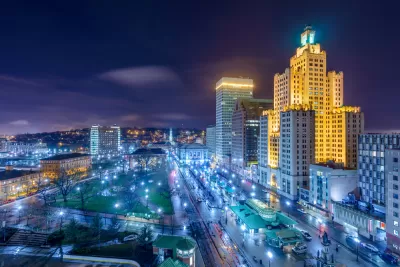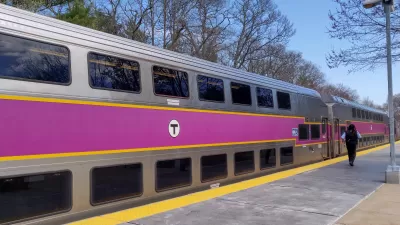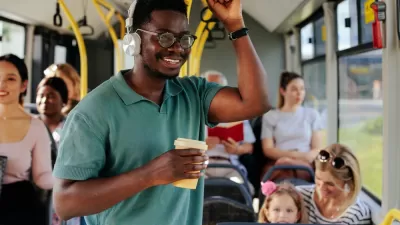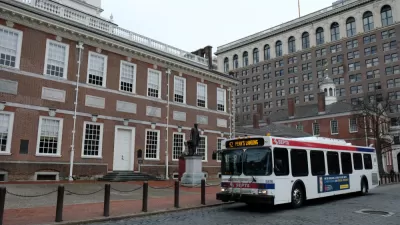The state's plan to dismantle and reorganize its busiest bus plaza faces allegations of civil rights violations.

A group of transit and environmental justice activists has filed a Title VI Civil Rights Act complaint against Rhode Island's Department of Transportation, reports Christian MilNeil. The plaintiffs argue that the Department's plans to dismantle downtown Providence's Kennedy Plaza, Rhode Island's biggest transit hub, would take valuable resources away from communities of color and amount to a violation of civil rights.
The suing organizations, Grow Smart Rhode Island and the South Providence Neighborhood Association, claim that the "deeply flawed and harmful plan by the Rhode Island Department of Transportation (RIDOT)" would "virtually eliminate the central bus hub in downtown Providence," harming Providence transit riders who are majority (53%) people of color. Although publicly available plans are vague, some documents mention a smaller, relocated bus transfer hub, new mini-hubs a quarter-mile away from the current location, and a major reorganization of RIPTA's bus routes.
President of the South Providence Neighborhood Association Dwayne Keys claims that the renovation would "make Kennedy Plaza a kind of tourist attraction" rather than improve transit for the people who already use it on a daily basis. According to the complaint, dismantling the plaza would cause disruptions, create longer commute times, and eliminate access to shelters and restrooms for bus riders, amounting to an effort to remove transit riders from Kennedy Plaza.
FULL STORY: RI’s Kennedy Plaza Plan Faces Civil Rights Challenge

Alabama: Trump Terminates Settlements for Black Communities Harmed By Raw Sewage
Trump deemed the landmark civil rights agreement “illegal DEI and environmental justice policy.”

Planetizen Federal Action Tracker
A weekly monitor of how Trump’s orders and actions are impacting planners and planning in America.

The 120 Year Old Tiny Home Villages That Sheltered San Francisco’s Earthquake Refugees
More than a century ago, San Francisco mobilized to house thousands of residents displaced by the 1906 earthquake. Could their strategy offer a model for the present?

LA’s Tree Emergency Goes Beyond Vandalism
After a vandal destroyed dozens of downtown LA trees, Mayor Karen Bass vowed to replace them. Days later, she slashed the city’s tree budget.

Sacramento Leads Nation With Bus-Mounted Bike Lane Enforcement Cameras
The city is the first to use its bus-mounted traffic enforcement system to cite drivers who park or drive in bike lanes.

Seattle Voters Approve Social Housing Referendum
Voters approved a corporate tax to fund the city’s housing authority despite an opposition campaign funded by Amazon and Microsoft.
Urban Design for Planners 1: Software Tools
This six-course series explores essential urban design concepts using open source software and equips planners with the tools they need to participate fully in the urban design process.
Planning for Universal Design
Learn the tools for implementing Universal Design in planning regulations.
Ada County Highway District
Clanton & Associates, Inc.
Jessamine County Fiscal Court
Institute for Housing and Urban Development Studies (IHS)
City of Grandview
Harvard GSD Executive Education
Toledo-Lucas County Plan Commissions
Salt Lake City
NYU Wagner Graduate School of Public Service





























